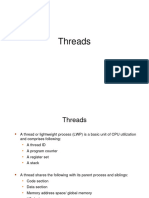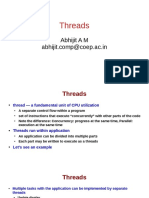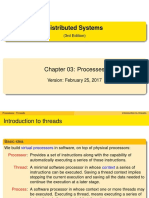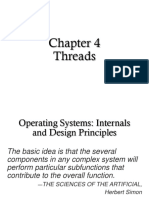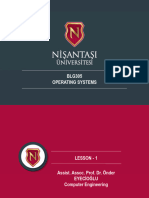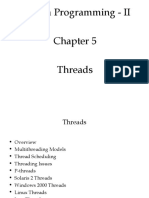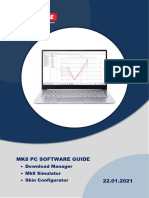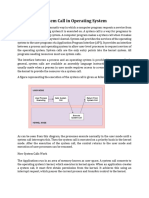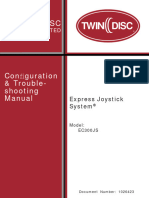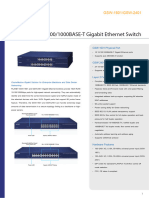0% found this document useful (0 votes)
17 views9 pagesThreads 2
The document discusses various threading models in operating systems, including many-to-one, one-to-one, and many-to-many mappings between user and kernel threads. It introduces the concept of lightweight processes (LWPs) and scheduler activations, explaining how they facilitate efficient thread management. Additionally, it covers thread libraries, particularly POSIX Threads, which provide standardized APIs for thread creation and synchronization in UNIX-like operating systems.
Uploaded by
alamad402Copyright
© © All Rights Reserved
We take content rights seriously. If you suspect this is your content, claim it here.
Available Formats
Download as PDF, TXT or read online on Scribd
0% found this document useful (0 votes)
17 views9 pagesThreads 2
The document discusses various threading models in operating systems, including many-to-one, one-to-one, and many-to-many mappings between user and kernel threads. It introduces the concept of lightweight processes (LWPs) and scheduler activations, explaining how they facilitate efficient thread management. Additionally, it covers thread libraries, particularly POSIX Threads, which provide standardized APIs for thread creation and synchronization in UNIX-like operating systems.
Uploaded by
alamad402Copyright
© © All Rights Reserved
We take content rights seriously. If you suspect this is your content, claim it here.
Available Formats
Download as PDF, TXT or read online on Scribd
/ 9



